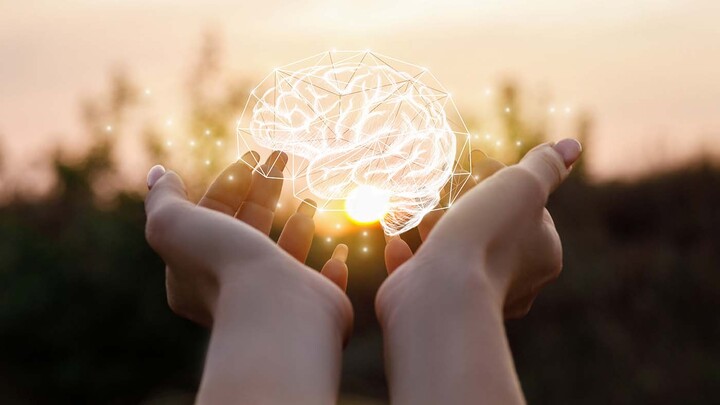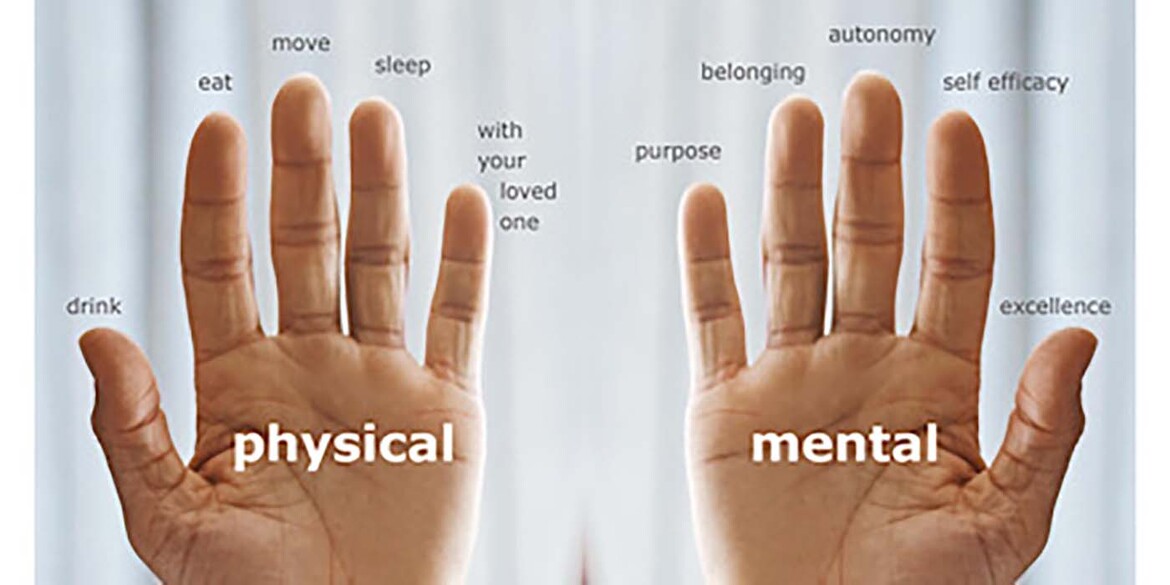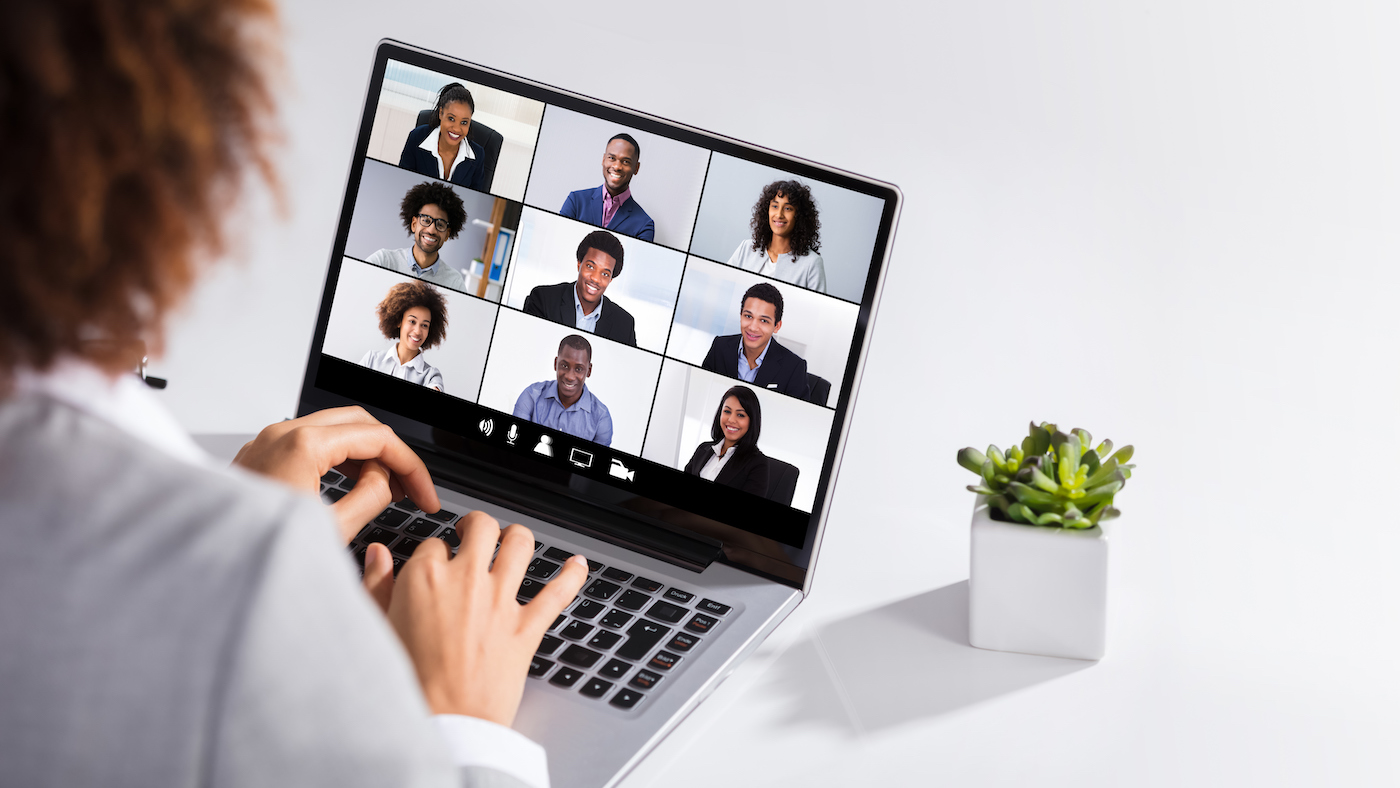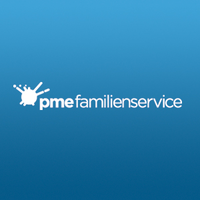Mental Health in the Hybrid World of Work
During Covid times, we need to boost contentment in the world of work, a topic on which eco and pme Familienservice give clear recommendations.

© Natali_Mis| istockphoto.com
The Covid-19 pandemic has turned our working world upside down. For those with good media and self-management skills, things might not have been that hard. But in the past months, the fact that masses of people had to cope with many new challenges related to the pandemic, home office, and homeschooling, the dominant New Work topics that have emerged are resilience, stress management, and coping strategies to deal with stressful situations, including depression and burnout.
1. Clear rules and structures, also in the hybrid working world
What the Internet industry has managed to do is transform the world of work from “on-site” to “remote” in a very short time. But the extensive changes and associated strains can have an impact on both daily work and private life. Those who ward off any harmful effects of stressors by taking appropriate measures and dealing with the special features of New Work can have a win-win situation.
2. Strengthened resilience through targeted measures
At the end of the day, companies are only as resilient and adaptable as their employees. Particularly in the hybrid world of work, dealing smoothly with work pressure, interpersonal issues, and constant change has advanced from being the secret ingredient of successful companies to a necessity for survival.
Resilience is to personality what physical fitness is to athletes. Those who set themselves up with goals and who adopt good techniques have the advantage. In order to be able to act in a targeted manner when action is needed, a practical diagnostic tool such as the “Ten Finger Needs-Oriented Self-Diagnosis Tool” is ideal.[1] Within one minute, it offers an overview of the current factors detracting from well-being and performance.
3. What is stress in real terms?
Most people have a rather intuitive understanding of what stress is. But one or two misunderstandings can lurk behind this, preventing a suitable method of dealing with stress.
Taking a closer look at this question is therefore something worth doing. We were all taught in school that we can solve difficult tasks by making more effort and by concentrating harder. Concentration, neurologically speaking, means that we exert cognitive control to stabilize a selected process in the brain. In this case, the frontal brain acts as a kind of signal amplifier, emphasizing the desired parts of a procedure in the brain. We do this when we want to guarantee a certain outcome of a situation. If we can’t do that – because we can’t control all the factors – we concentrate relentlessly and with high intensity. On top of this comes the fear that we won’t achieve the outcome and that we might lose face as a result. Stress is solely that mixture of attempted control and fear.
4. Can stress make you sick?
As studies show, excitement is not inherently unhealthy or harmful for people. For many activities, we can even say that the opposite is the case. But when we don’t want this excitement, when fear is added and we put ourselves under permanent pressure, then excitement becomes unhealthy stress. It feels different from intentional excitement, and the hormone composition in the body is also different. Instead of serotonin, the excitement hormone dopamine is now joined by cortisol and noradrenaline. As a rule of thumb, it can be said that the kind of excitement we willingly expose ourselves to or would even pay for – parachute or bungee jumps, roller coaster rides, competitive sports, or even demanding work that is meaningful and fulfilling – is basically beneficial and stimulating.
“Anxiety and stress almost exclusively concern the future”
Activities for which we put ourselves under constant high pressure and which, in the worst-case scenario, produce few results (little appreciation, outcomes which are barely presentable, limited recognition, a lack of perspective) can cause real damage to organs and the psyche in the long run.
5. What can be done to defuse stressors?
There is a range of good answers to this question that apply to different timeframes. A distinction can be made between measures that can be implemented immediately, those that are based on a daily routine, or long-term alternatives that involve a fundamental change of approach. Here is a brief overview.
If you’re in a hurry: Coping mechanisms for acute stress
Three examples of coping mechanisms:
- If you are overly tense: Inhale deeply three times and exhale with a deep sigh, letting your shoulders drop and loosening your jaw. If possible: yawn.
- When you are annoyed, swearing out loud has been proven to help. However, be careful not to offend yourself or others when you do this, regardless of whether these people are present or not. If you are alone, this is an excellent outlet. The analgesic, soothing effect has been scientifically proven.
- If you experience intense emotions that are difficult to get rid of, get as deep into the emotion as you can and make a game out of it. Our brain cannot sustain intense emotions for more than about half an hour.
“Most activities are not a matter of life and death”
6. Taking breaks that matter
Anxiety and stress take place almost exclusively by our peering into the future. We are stressed because we imagine all the things that can go wrong, what can happen as a result, and how terrible that will be. If you want to have a break that really restores your peace of mind, you need to look for something whose intensity can haul you away from your brooding about the future and back into the here and now:
- An intense exercise session (perspiration on a face with good circulation indicates that you are doing it right),
- A cold shower (yes, you’re thinking “How awful!”, but most people who start to do this can’t get enough, because after three minutes you jump out of the shower like a newborn),
- Listening to loud music and, best of all, singing and dancing along,
- Taking a nap lasting no more than 20 minutes,
- Cooking a delicious dish,
- Doing some craft work,
- Or even playing an action-packed video game.
Rule of thumb: Anything with a sensory impact that is so great that you can’t brood at the same time is helpful!
7. Mindset
When it comes to strategic timetables, it helps to prioritize tasks. The Eisenhower matrix serves well here: First, complete what is important and urgent. After that, tackle the tasks that are important but not urgent or plan these activities with a specific deadline. Under no circumstances should urgent but unimportant tasks be accorded priority! These tasks should only be taken care of after the important, non-urgent tasks, and can be delegated if necessary. Unimportant, non-urgent tasks should be discarded or removed from your inbox.
You then need to consider which stressful circumstances you can let go of in the medium term – stressful contacts, tasks, or environments. You might ask: Do I want to do this job for the next five, ten, fifteen years? Check things out if they are not yet urgent – just as you have your teeth examined now and then, even if you don’t yet have a toothache.
The right mindset is also important. Those of you reading these lines are likely to be enjoying the luxury of dealing with first-world problems. Most tasks are not a matter of life and death, but a matter of what you want or what someone else wants or demands. How annoyed we get by other people’s emotions is in our own hands.
Think along these lines: Emotions are evaluation suggestions that your brain makes to you based on experiences and habits. Emotions are comparable to a movie being shown to you. You can take these emotions seriously, but you don’t have to – at least not always. The less you take yourself and your emotions seriously, the more robust your humor becomes. A shoe you don’t put on can’t hurt.
8. The ten-finger method?
The ten-finger method helps us to find out what is currently missing, and which battery we need to recharge. The more deplete one or several of our batteries are, the more we become sensitive, unhappy, and prone to suffering – and any kind of exertion puts more strain on us. So, the next time you feel like you could do with some improvement, look at your left palm and go through these five needs:
Thumb:
- Do I have a dry mouth or am I drinking enough?
Index finger:
- Have I eaten something sensible, something that made me feel really sated?
Middle finger:
- When was the last time I physically exerted myself to the point where I was sweating, panting or had red cheeks?
Ring finger:
- When was the last time I slept really well? (We have developed another self-diagnosis tool for this check)
Little finger:
- When was the last time I enjoyed physical closeness with another person? (Ideally, love-related)
These are the most vital physical needs. If this list sounds familiar, it’s probably because it’s inspired in part by Dr Eckart von Hirschhausen.
We’ve started with the left hand and the physical needs because they are necessary and urgent. The needs of the right hand are also important but do not need attention every few hours:
Thumb: Excellence.
- We want and need to experience that we are good at something and continue to improve in this area: whether it’s a job, a sport, or another hobby. Cultivate your competence, challenge yourself, become better at what matters to you!
Index finger: Self-efficacy.
- We want to feel that we have leverage and that our actions have an impact. We want to shape and manage our home, our relationships, our career, our body etc. During pandemic times, this need has fallen far short for many people and has made them susceptible to psychological pressures resulting in stress.
Middle finger: Autonomy.
- Find something to do on your own, at your own pace, in your own way, with nobody allowed to intrude.
Ring finger: Relationships.
- Humans are pack animals. We want romantic relationships, friendships, family relationships, collegial relationships. We want to belong to these and to be meritorious, sought-after members of groups. This is of course at odds with the experience of autonomy. Both require their own time.
Little finger: Purpose.
- You don’t have to have a big picture in your mind’s eye for every action, but from time to time we want to take a bird’s eye or satellite view and see if we are going in the right direction and if what we are doing is leading to where we want to be later.
If you can’t memorize all of the above, here is a practical poster that you can hang on your desk as a memory-aid.

Ultimately, if you want to fortify yourself, take care of your needs. And no worries: if you are honest with yourself, you will immediately perceive where things are lacking. Also, establish good routines that keep you cheerful, energetic, and in good spirits. Create a repertoire of break routines to restore your peace of mind – and for emergencies, a handful of playful and humorous coping mechanisms that remind you that most things are not as traumatizing as we make them seem.
___________________________
[1] This “Ten Finger Needs-Oriented Self-Diagnosis Tool” tool is known in German as “Zehn Finger Bedürfnisorientiertes Selbstdiagnosewerkzeug” (ZEFIBOS) and has been devised by Mario Müller, pme Familienservice
Michaela Templin M. Sc. MBA is Project Manager at eco – Association of Internet Industry. She represents the layer of cybersecurity, e.g. Information Security and New Work. Her responsibilities include projects in the context of New Work, e.g. Topic Talk – New Normal and she also manages the content and structure of the Security Competence Group. Her activities on topics such as the LiT-Speaker portfolio support the eco Ladies in Tech initiative. Prior to starting work at eco in August 2019, Michaela worked as a digitalization consultant and supported over 40 companies of the tool industry in the field of industry 4.0 and digitalization as a transformation process. Her passion is to accelerate the progress.
Mario Müller studied computers, then brains. He is a leadership trainer and professional improviser who could be found busy between Chicago and Taipei over the last 15 years. He worked with the managing boards of banks, people with mental disabilities, professors, Egyptian elite students, people with dementia, Nigerian event managers, politicians, Swiss comedians and Chinese Clowns – and is currently working on his seventh book. He is into the near future of artificial intelligence and robotics, New Work/agile organization and teaches acting for stage and camera. He plays fistball (yes, that’s a thing) and beach volleyball and loves animals, of which the furry ones strongly tend to love him back.







